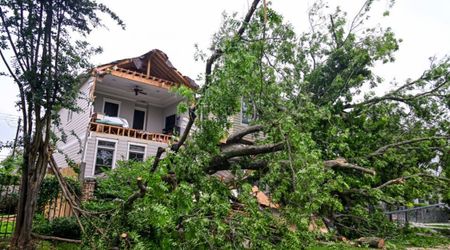Arizona's economy takes a $4.7B hit annually due to dearth of affordable childcare, study finds

TUCSON, ARIZONA: Arizona families are grappling with the worsening challenge of accessing affordable childcare.
According to a ReadyNation study, the crisis has a substantial economic impact, with a loss of nearly $5 billion annually in wages and tax revenue due to the scarcity of affordable childcare.
While the shortage of childcare providers may initially appear as a concern for parents, a recent report emphasizes that it is a broader crisis that the entire state is struggling to address.
Lack of options leads to financial burden and lost income for parents
The prevalence of "daycare deserts" across the state is proving to be a significant financial burden, amounting to a staggering $4.7 billion annually, as revealed in a report funded by the Helios Education Foundation.
The impact is felt by taxpayers, parents, and businesses alike, with 70% of 306 surveyed parents expressing difficulties in securing quality childcare.
This not only affects parents but also takes a toll on their employers, says a 13 News report.

Over half of the respondents admitted to being late to work, experiencing distractions, or taking full days off due to the lack of childcare options.
This results in a substantial financial loss of $6,320 per parent and a staggering $3 billion loss for the state, according to the report.
The study honed in on children in the critical developmental phase from birth to 5 years old. The financial burden is significant, with childcare expenses reaching up to $14,000 per year for an infant, leading to limited options for parents.
The state of Arizona is mandated to conduct a market rate survey every three years.
In the latest survey from last year, a concerning trend emerged, with a notable decrease in certified family homes, plummeting from over 1,000 to just over 200.
Caroline Wesnitzer, co-founder of Timeless Play, pointed out, "I think it’s not as much interest in that we don’t respect the profession, and so people are leaving."
Childcare woes higher in low-income demographics
In Arizona, the low pay for teachers and minimum wage for daycare workers drive individuals to seek higher-paying opportunities in other fields.
Additionally, variations in childcare center operations contribute to the challenge. Timeless Play, for example, adopts a flexible, need-based approach.
Parents can drop off their children for a few hours if they have important midday commitments, offering a more adaptable solution to the demands of modern work schedules while also helping address shortfalls in nurturing and brain development.
ReadyNation highlighted that the crisis can potentially impact the state's future workforce.
In a news release on December 5, it emphasized that Arizona policymakers have the opportunity to enhance the "availability of high-quality childcare."
Through "wise investments," policymakers can positively influence the "life outcomes of thousands of Arizona children," concurrently strengthening the state's workforce and economy both in the present and for "years to come," it noted.
“Lack of affordable child care options is not just an inconvenience for parents in this state. It is holding back our economy,” said Michael Guymon, president and CEO of the Tucson Metro Chamber of Commerce.
“Parents need care for their children so they can go to work or school. Parents need to know that their children are well cared for in a quality setting and employers want a workforce that can focus on work,” Guymon added.
The report's findings underscore the heightened severity of inadequate childcare for specific demographics, including parents with non-traditional work hours, those residing in rural areas, and individuals classified as low-income.










